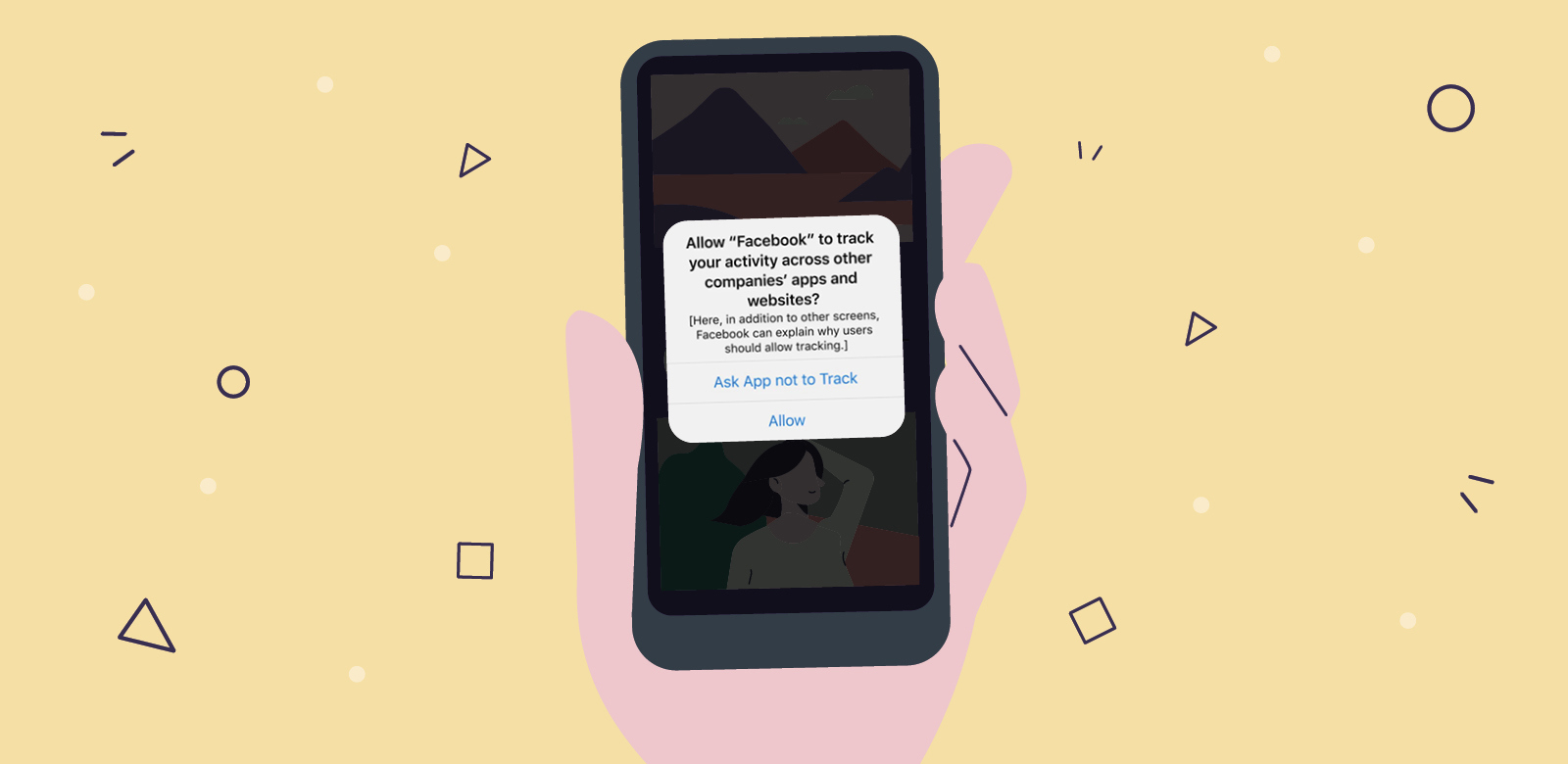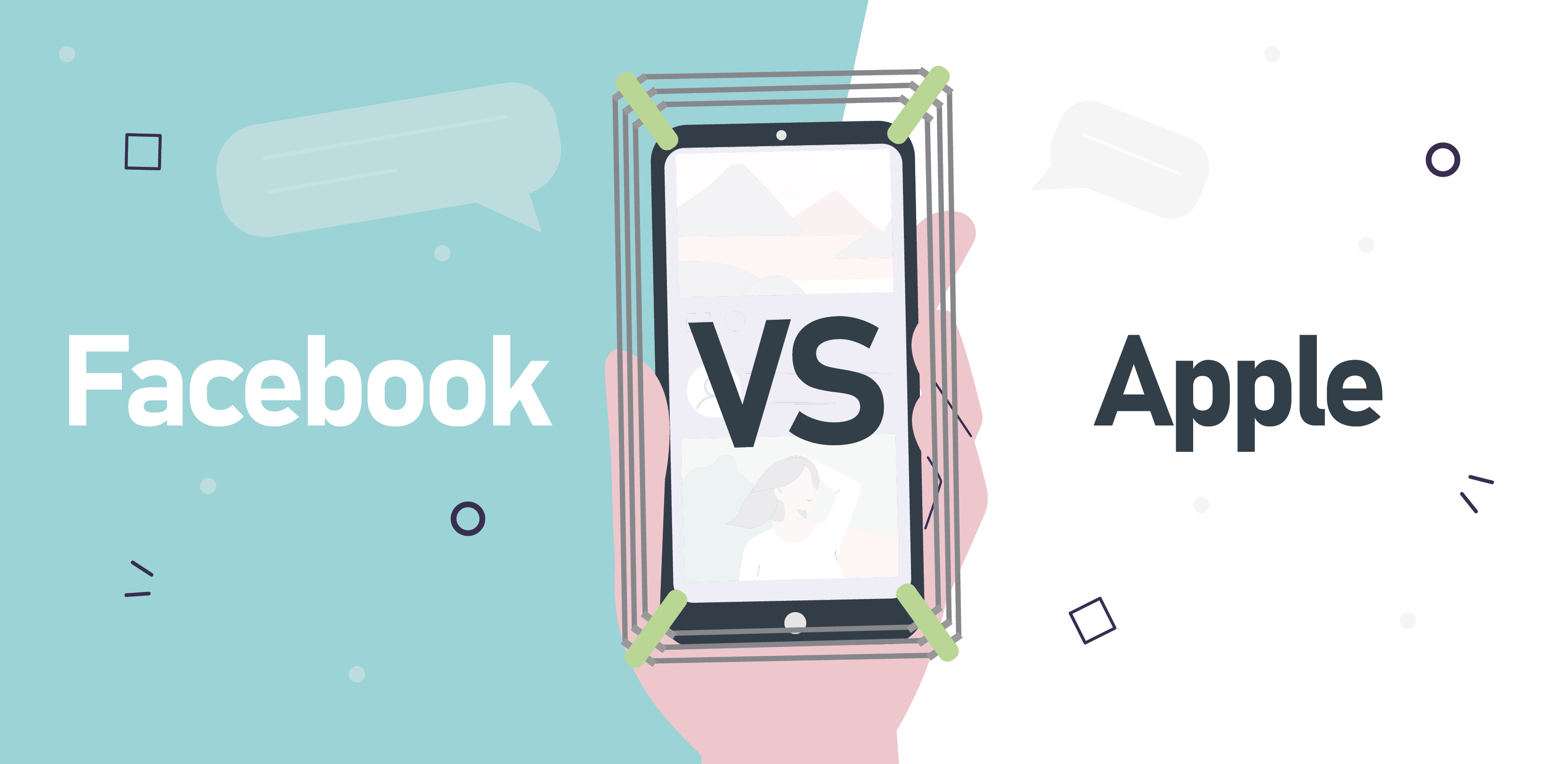Facebook recently launched their scathing attack on Apple’s AppTrackingTransparency policy. Their angle? That the new regulations (part of the iOS 14 update) will impact small businesses. And those small businesses have already been dealt a bad hand over the past 12 months.
It’s a great way for the media giant to become the good guys by seemingly providing a voice to those that need it: the small coffee shops, the independent boutiques, the local tradesmen. They’re championing local businesses. And skimming over the privacy issues and bad press that have hit the company significantly over the past two years.
There’s no denying the need for better privacy. We’re all becoming much more aware of our data – and have been for a few years now. The Great Hack (which we blogged about a while ago) and other Netflix docu-films have brought to the forefront the value of data for these big companies and shined a light on how much the platforms know about us.
They’re not just seeing what we’re up to on the platform, but also when we leave and use apps and other websites. And that’s essentially what Apple doesn’t like.
Aside from the drama - that defiant New York Times ad, those Google Analytics and Safari rumours, and not forgetting the angry voices on the Facebook press office blog - what does the update mean for you and your business?
In this blog, we’re giving you the low-down on the app tracking policy and how it could impact your digital marketing campaigns.
What is Apple’s app policy and the iOS update I’m hearing so much about?
Usually, an Apple updates comes and goes without much of a bang. But their latest one, iOS 14, is causing a stir because of its crack down on privacy. The main victims of the update are the apps that track you across the entire internet. Apps like, but not limited to, Facebook.
The new iOS 14 update will mean that app users will have to opt-in for the apps to track them around the web. Before, the policy would probably sit in the dusty terms and conditions. The new update now means that every iOS 14 user will receive a pop-up when they access the apps, that will ask them to opt-in to tracking.

We can assume that the main repercussion of the above “discouraging prompt” (as Facebook calls it) is that many users will not opt-in to tracking. And there we have the issue that the social media giant is stressing.
What will Apple’s AppTrackingTransparency policy mean for web tracking and Facebook?
So, if you don’t opt-in for app tracking, it means that sites can’t see what you’ve been browsing on the web, what content you’ve been consuming after you leave their app, or even what actions you take (such as submitting a form). And this will affect their campaigns or ad revenue. Often, apps will use this data to serve you personalised ads to make money.
This also means that data collected from pixels/ tags, such as conversion web events, may be affected (untracked), again, influencing potential targeting options such as Lookalike data. In a countermove, Facebook has introduced processing the event data for iOS 14 users through Aggregated Event Measurement.
The platform has highlighted what businesses should do to implement the Aggregated Event Measurement in this guide.
Facebook has also highlighted that the privacy update will affect the Audience Network, one of the sites’ popular placements. This serves personalised ads on third-party sites and apps, which may therefore be heavily affected. And it could even mean that the Audience Network is “rendered ineffective” and removed completely from the platform.
How will this specifically affect your digital marketing activity?
First, let’s get one thing clear. For advertisers, the update doesn’t mean no personalised ads at all. Some users will opt-in. So you’ll still be able to run campaigns to various audiences, and apps that track behaviour will still be able to. It will just be limited.
From digital marketing, the updates could affect your campaign’s effectiveness, optimisation and even targeting options.
If you’re a publisher, you may find that ad revenue reduces, as your campaigns will be less effective.
Meanwhile, app developers will have to offer greater transparency on the data they collect. Users of the app will know what information they have given up in order to use the app. App creators may even have to charge for usage of the app, rather than rely on ad revenue.
What should I do as an advertiser?
Aside from affecting campaign performance directly from personalised ads on the platforms you advertise on, you may find it harder to reach your audiences.
Therefore, it has become even more important for advertisers to go back to basics. To a time before data collection.
With reduced campaign effectiveness from the channels alone, your campaign will have to work harder. This may mean:
- a greater emphasis on striking, memorable creative to grab attention
- detailed audience research to craft hyper-relevant messaging. If we do reach them, they’ll notice. And do what we want them to do.
- Alternative and innovative ways to engage and reach these audiences.
Considering the above, we believe you’ll still be able to run successful digital marketing campaigns despite how the Facebook and Apple feud ends. And that’s the main thing, isn’t it?
If you’d like help navigating the new iOS 14 update or simply have a chat about your next digital & creative campaign, speak to us.

